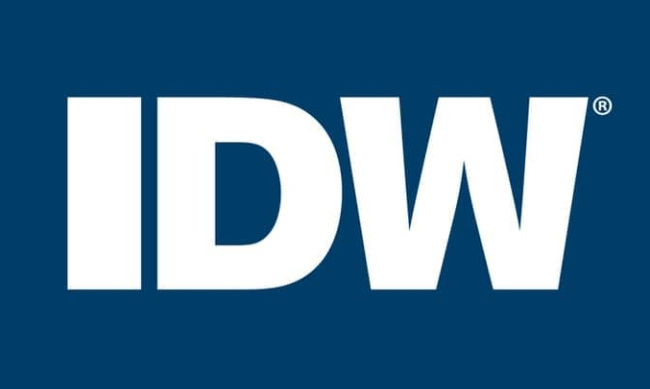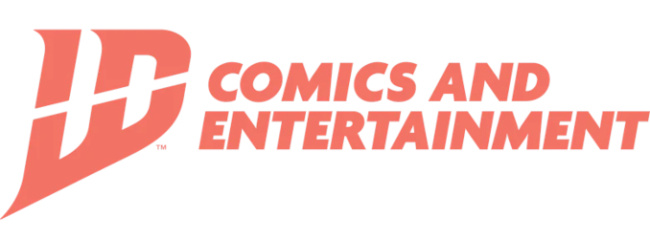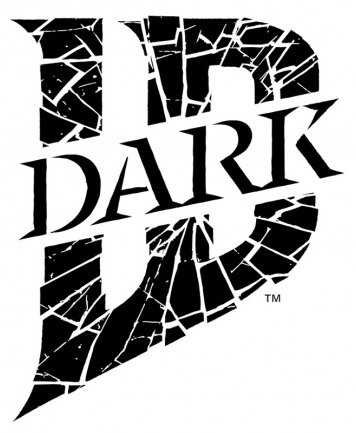IDW Media Holdings, parent of IDW Publishing, revealed an evolving content strategy, the anticipated impacts from the Diamond Comic Distributors bankruptcy, the scale of its digital business, and more in its quarterly financial report for the three months ended April 30 (fiscal Q2) and conference call.
The content strategy changes are significant, IDW CEO Davidi Jonas revealed in the conference call. IDW has historically published comics and graphic novels from three "content buckets," he explained. Those included licensed titles; creator-owned titles published under the IDW Originals imprint, usually first as periodical comics and then as collections; and creator-owned titles published under the Top Shelf Productions imprint, which tended to be more literary content and usually went straight to graphic novel format.
"When IDW Originals launched, there was a pretty robust catalog of titles, and the spending, I would say, was substantial, certainly relative to the value that was being generated for shareholders," Jonas said. "And so we cut back meaningfully on the IDW Originals program, especially on the ones that were substantially costly." Some were moved to Top Shelf.
Jonas said the company had also observed that the range of IDW Originals titles made it hard to build a consistent brand. "The other thing that we noticed about IDW Originals is that they were pretty fragmented in terms of what you would be able to expect,… because 1 month, you might pick up a horror title from Scott Snyder, and then the next month might be a kids title about cooking with a monster," Jonas explained.
IDW is also moving into a totally new category of content, company-owned titles. "And then the fourth bucket, which we're creating now, is our company-owned content, where IDW is going to be generating content internally that we are going to own and control completely," Jonas continued. "We'll be making sure that there's remuneration and upside for the creative partners that we work with, but it's not like a creator-owned project where the underlying IP is owned by the creator."
Jonas expressed a realistic understanding of the odds of success of the new content. He asked and answered the question for analysts on the call: "Would I say that the likelihood of success is very high or guaranteed? No."
"I mean this is the content game," he went on. "We have to we have to try and find our audience, we need to create exciting and compelling stories and characters and universes; but the upside potential is tremendous, and we believe we'll be able to mitigate the risk and manage the cost."
Jonas also discussed the impact of the Diamond bankruptcy, which will be felt in a couple of ways. First, the company now has a $746,000 allowance on its balance sheet for receivables it does not expect to collect. In late January, IDW indicated that it was exposed to a loss for unpaid invoices related to the Diamond Comic Distributors, without specifying an amount, indicating that it would take the hit for "a substantial majority" of money that Diamond owed Penguin Random House Publisher Services, its distributor, for IDW products (see "IDW Reports Losses"). That amount, for now, is just under $750,000, likely between 20-40% of the amount Diamond owed PRHPS when it filed. So now there’s a number that at least one publisher has put on its estimated Diamond losses; more to come on that front, we’re sure.
The other impact is from lost sales related to PRHPS cutting off sales through Diamond Comic Distributors as the new owner took over (see "Diamond Will No Longer Distribute IDW"). IDW estimated that sales via PRHPS through Diamond Comic Distributors amounted to 15-30% of the total, and that some percentage of those sales will be lost in the transition to PRHPS exclusivity. "Some of them might not really be comic shops," Jonas observed. "Some of them might be sort of comic buying collectives where I don’t think PRH will set them up as customers." As a result, IDW is now projecting a sales impact through the rest of the year.
Jonas didn’t sound too disappointed to lose the sales through Diamond, though, describing Diamond as "…a wholesaler that was perennially behind on its payment terms." The result will be "…a healthier marketplace that will be more stable for those comic shops and for customers," he predicted.
In a discussion of whether increased digital sales could make up for lost sales through Diamond, Jonas noted that digital sales were 5-7% of total revenue, so not in the same scale as the Diamond sales.
IDW reported a 16% decline in sales for the first six months of its fiscal year (through April 30), to $9.8 million in 2025 from $11.6 million in the same six months a year ago, which it attributed to tough comps against strong Turtles sales.
IDW lost $1.74 million in those six months, a worse outcome than the $1,13 million loss in the year ago period. Without the Diamond receivables allowance, the current year would have shown better results than a year ago, due primarily to reduced expenses.





